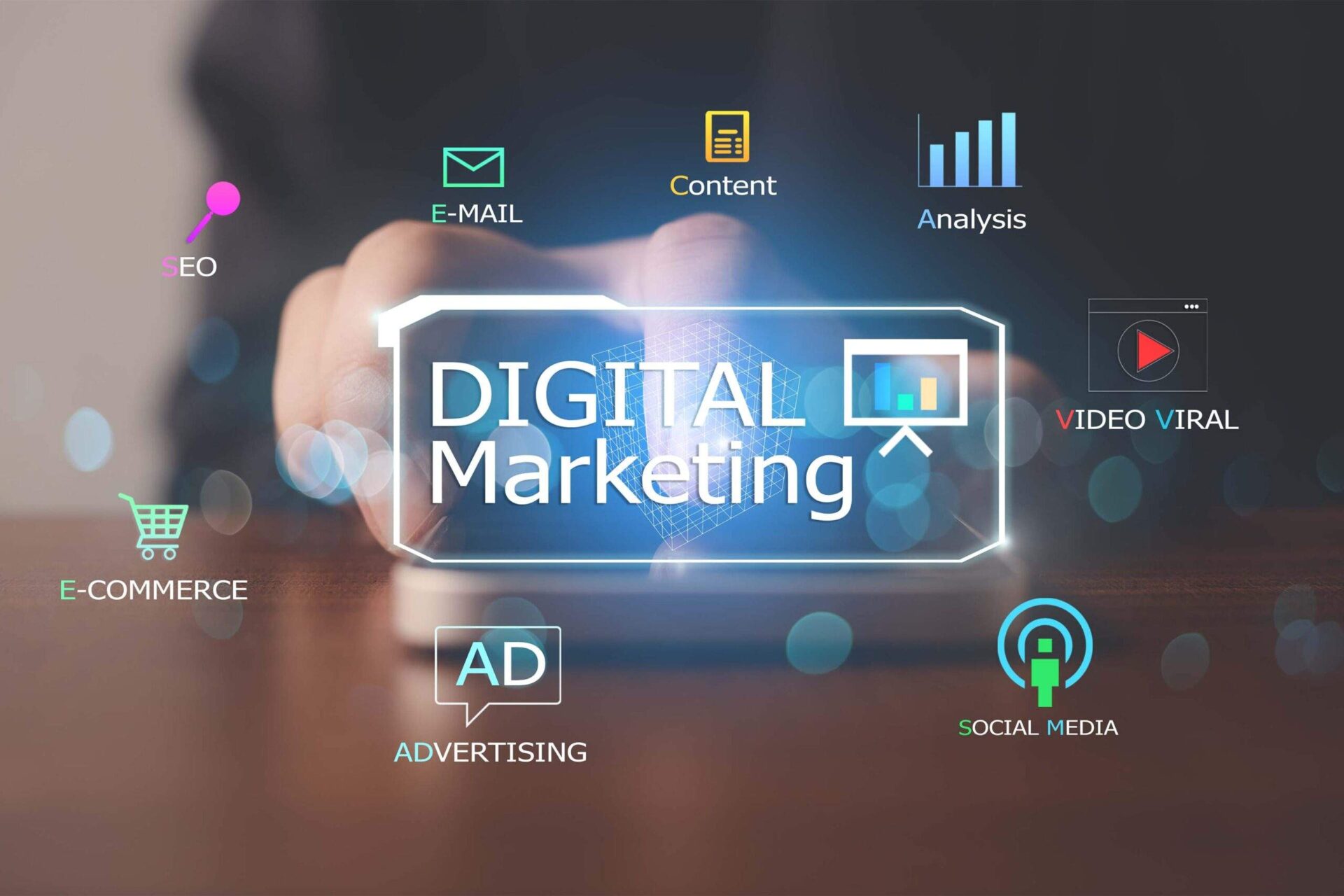In the world of digital marketing, there are two major terms you’ll likely come across – SEO and SEM. Many people think they mean the same thing or use them interchangeably, but that couldn’t be further from the truth! To make sure you’re getting the most out of your digital marketing efforts and producing successful results through organic search engine traffic growth, it’s important to know how both strategies can impact your success. In this blog post, we will discuss what makes SEO vs SEM different and when each should be implemented for optimal outcomes. Keep reading to learn everything you need to know about these two powerful tools in digital marketing so you can remain competitive in today’s crowded online space!
What is Search Engine Optimization (SEO)?
Have you ever tried searching for something on Google and wondered how certain websites always manage to appear at the top of the search results? It’s all thanks to SEO or Search Engine Optimization. Essentially, SEO is a set of techniques and strategies that businesses use to improve their visibility online and attract more traffic to their website. By optimizing their website’s content and structure, businesses can increase their chances of appearing at the top of search results for keywords related to their industry. In today’s digital age, SEO has become a crucial aspect of any online marketing campaign, and businesses that ignore it could be missing out on a lot of potential customers.
What is Search Engine Marketing (SEM)?
Have you ever typed a query into a search engine and noticed the first few results marked as “Ad”? That’s the work of , or Search Engine Marketing. SEM involves using paid advertising and optimization tactics to increase a website’s visibility on search engine results pages (SERPs). This can include Pay-Per-Click (PPC) advertising, keyword research and targeting, and crafting compelling ad copy that entices users to click through to a website. Essentially, SEM is all about getting eyes on your website and driving traffic through the power of search engines. By optimizing your online presence and leveraging paid advertising, SEM can help your website stand out in a crowded online marketplace.
The Difference Between SEO & SEM
When it comes to digital marketing, the acronyms SEO and SEM are thrown around a lot. But what do they mean exactly, and how do they differ? SEO stands for search engine optimization, SEO services involve optimizing your website and its content to rank higher on search engine results pages. This is done by incorporating keywords, improving site speed and structure, and building quality backlinks. Meanwhile, SEM stands for search engine marketing, which refers to paid advertising on search engines, such as Google AdWords. While both tactics aim to increase visibility on search engine results pages, SEO takes a more organic approach, whereas SEM involves paying for ads. Understanding the differences between the two can help you strategize your digital marketing efforts more effectively.
Benefits of Using SEO for Your Website
Having a website nowadays is essential for any business. However, not having the right strategy to attract visitors can negatively impact your online presence. This is where Search Engine Optimization (SEO) comes in handy. Implementing SEO tactics can increase the visibility and the ranking of your website on search engines, leading to more organic traffic.
- With the right keywords and optimized content, your website can become a valuable asset in generating leads, building brand awareness, and ultimately boosting revenue.
- Additionally, SEO is a long-term investment that can provide success consistently over time.
- By focusing on the user experience and providing high-quality content, your website can become a reliable source of information and a go-to destination for visitors.
Therefore, if you want to stay ahead of your competitors and establish a strong online presence, SEO is a must-have strategy for your website.
Benefits of Using SEM for Your Website
Search Engine Marketing (SEM) is a powerful tool that can help your website thrive in the ever-evolving digital landscape. Not only does it drive targeted traffic to your website, but it also increases visibility, allowing your brand to stand out against the competition.
- One of the greatest benefits of SEM is that it gives you complete control over your ad campaigns, allowing you to tweak and optimize them as you see fit.
- Another advantage is the detailed analytics provided, allowing you to see exactly how users are interacting with your website.
With these insights, you can adjust your strategy accordingly, ensuring that your website stays relevant and effective. If you want to take your website to the next level, SEM is an investment you can’t afford to miss out on.
Determining When to Use SEO vs. When to Use SEM
All businesses, especially those with an online presence, need to determine the right strategies to attract visitors and convert them into customers. Two of the most popular strategies are Search Engine Optimization (SEO) and Search Engine Marketing (SEM). Both are effective, but they serve different purposes and require different techniques. SEO focuses on improving the organic search rankings of a website, while SEM involves paid advertising that appears in search results. The decision to use one strategy over the other depends on several factors, including the industry, audience, competition, and budget. Choosing the best strategy requires understanding the strengths and limitations of each one, as well as the goals of the business. By making an informed decision, businesses can gain a competitive advantage and achieve their marketing objectives.
Tips for Implementing an Effective SEO Strategy
Implementing an effective SEO strategy can be a daunting task, especially if you are new to the world of search engine optimization. Luckily, there are a few tips that you can keep in mind to help you get started.
- First, it’s important to conduct thorough keyword research to identify the most relevant and high-traffic keywords for your business.
- Second, make sure your website is well-organized and easy to navigate, with clear and concise content that is optimized for your target keywords.
- Finally, build high-quality backlinks to your site from reputable sources to help boost your search engine rankings and increase your exposure online.
By following these tips, you’ll be well on your way to implementing an effective SEO strategy that will help you achieve your business goals.
Tips for Implementing an Effective SEM Strategy
With numerous SEM options available, such as Pay-Per-Click (PPC) and Search Engine Optimization (SEO), crafting a compelling plan can be challenging. However, with the right tips and tricks, implementing an effective SEM strategy can significantly enhance your online presence and increase customer engagement.
- Some essential elements for creating successful SEM campaigns involve identifying your target audience, selecting relevant keywords, and creating appealing ad content.
- Additionally, monitoring your campaigns’ performance and regularly refining your strategy will enable you to create high-performing campaigns that align with your marketing goals, guaranteeing a robust return on investment.
How to Improve Your Sites Performance with SEO or SEM
IA website that is not optimized for search engine results pages (SERPs) will not be visible to search engines, which in turn means it will see limited traffic, leading to fewer conversions. The use of Search Engine Optimization (SEO) or Search Engine Marketing (SEM) tools is necessary for improving the performance of your website on SERPs. Some many available tools and techniques can help you monitor, analyze, optimize, and improve your website’s performance. With the right tools, you can identify areas requiring improvement, such as site speed, keywords, or content, and implement changes to help your website rank higher on SERPs and increase its visibility to potential customers. Don’t let your website fall behind your competitors, instead, invest in these valuable tools and see the results for yourself.
Conclusion
To summarize, SEO and SEM are both powerful marketing tools used to generate more website traffic and improve visibility. A combination of the two can be very beneficial in reaching the desired business goals. However, deciding when to use SEO versus SEM comes down to a few factors, such as your budget, competition level, and overall goal. Once this is determined, the best course of action for creating an effective strategy is to choose tools that fit within those parameters. For example, if you have a limited budget you could use free tools like Google Analytics to track organic search rankings or determine what content will perform best through SEM. Additionally, choosing a professional agency that specializes in both SEO and SEM can be extremely beneficial in cost-effectively driving increased web traffic. Taking the right steps towards implementing either or both marketing strategies is essential for successful web promotion and website performance improvement.









